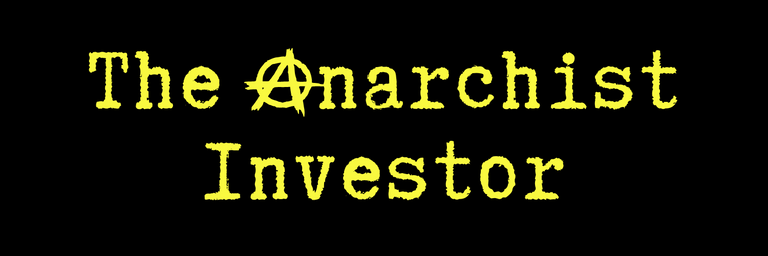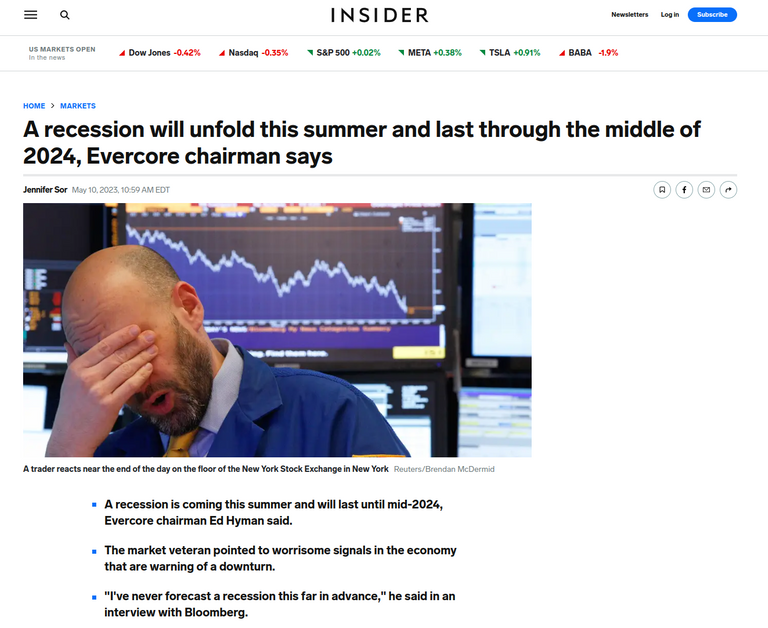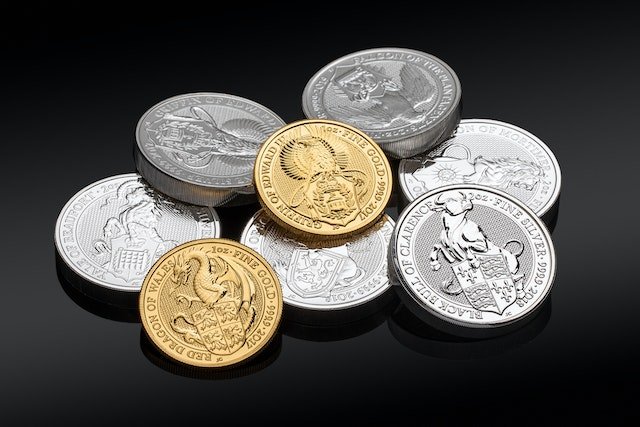
A system of capitalism presumes sound money, not fiat money manipulated by a central bank. Capitalism cherishes voluntary contracts and interest rates that are determined by savings, not credit creation by a central bank.
-Ron Paul
https://www.brainyquote.com/topics/interest-rates-quotes
The last 40 years of U.S. economic activity have been made possible by artificially low interest rates and a binge on debt spending. Per capita savings numbers are near all-time lows. We have an economy whose chief export is debt. And a population of consumers that rely on debt to support lifestyles they wouldn’t normally be able to. When these types of imbalances persist, they resolve in a very messy way. That means an economic downturn.

Here are the 5 Steps to get yourself ready:
1. Have Some Cash on Hand
As much as I resent the manipulation of the value of cash by the Federal Reserve and US Banking system, it is still a very liquid way to transact business. Especially if some really bad stuff goes down. It’s also a great disaster preparedness step. Have some cash ($500-$10,000) in a safe spot at home. Make sure some of it is in $1’s and $5’s. If there are electricity problems and payment systems go down, you can still buy things with $1’s and $5’s by simply rounding up to the nearest dollar and telling them to keep the change.
Cash is also something that needs to be in your portfolio at all times as a safety net if you lose your job or if you come across an investment opportunity that has a very short window of opportunity to capitalize on.
2. Pay Down Variable Rate Debt
Central bankers are trying to tell us that low interest rates will return again some day. Well that day may be years in the future. It may also mean that the economy is in dire straits when they finally cut interest rates and any debt you have will be a burden, especially if your job is downsized.
Fixed rate debt isn’t so bad but make sure your debt burden doesn’t make up more than 40% of your monthly income (think mortgage, equity lines, car loans, credit cards, etc.).
Many folks took out huge car loans with high interest rates in the past 2 years. If you’re one of these folks, please try and get out from under that loan immediately. Car loan and credit card defaults will be the initial cause of financial stress in this economic downturn. Followed by commercial real estate bankruptcies and debt restructurings.

3. Have Some Gold & Silver
Even if it’s a little bit, you will want to hold these as hedges against the Federal Reserve hyper inflating the currency if the recession is a bad one (think 2007-2008). If you currently don’t own any, start small and average in. Meaning you should pick a number you can afford to invest (I usually say 10% of your total portfolio) and divide that up into 12 equal installments. Then purchase 1/12th of that amount every month for the next year. Gold and Silver prices will fall if there is recession but then they will rise again once the Federal Reserve tries to rescue the economy by dropping rates and printing more greenbacks (aka monopoly money). My preferred purchases are gold and silver rounds through SD Bullion (sdbullion.com).

4. Bitcoin & Crypto
Bitcoin was supposedly made for this environment. We are going to find out if it behaves as intended. My assumption is BTC will drop along with all other assets but recover quicker. If you currently don’t hold any Bitcoin or Ethereum, I would purchase up to 5% of your portfolio over the next 12 months. The same way you would dollar cost average into gold & silver. You can do this through various exchanges such as Coinbase or Binance. I prefer using Swan Bitcoin (swanbitcoin.com).
5. Have A Plan If You Loser Your Job
It sounds depressing but you need to have a plan ahead of time if you happen to lose your job. Unemployment benefits will only supplement a portion of your income and may only last for a limited amount of time. You need to think about the following:
- Where could I look for a new job, quickly
- How long can I support myself/family on our savings
- What things do I have that I can sell for quick cash if I need it
- What expenses can I cut immediately to reduce monthly costs
- Do I have skills that can work as a side hustle (keep in mind uber and lyft may be cutting back at the same time everyone else is)
- What lifestyle changes am I willing to do to cut costs or increase my opportunity to make an income (ie - change locations, change where/how you spend, etc.)
I know it’s scary to think about these types of events. But fortunes are made and lost by those that are prepared or unprepared for them. Proper risk management techniques are a great place to start.
Let me know what you think in the comments.
How to Get Involved
The main newsletter will be free to all. Follow here on HIVE or sub on substack to get them in your email (anarchistinvestor.substack.com). In the coming months, I will begin building a paid offering that will provide a ‘model portfolio’.
Share this with friends and family that could make use of this info.
Keep in mind that investment and investment results are very much based on you as an individual. Do not rely solely on the discussion here to inform your investment decisions. Always make the investment decisions that are right for you.